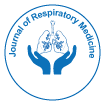开放获取期刊获得更多读者和引用
700 种期刊 和 15,000,000 名读者 每份期刊 获得 25,000 多名读者
抽象的
Seasonal Variations in Daily Mortality Associated with Exposure to Particulates, Nitrogen Dioxide and Ozone in Campo Grande, Brazil, from 2005 to 2020
Amaury de Souza
Introduction: The greater life expectancy in the country and the drop in mortality bring challenges to social programs for the care of the population, especially in the area of health. Objective: To investigate short-term effects of air pollution, climate variability on respiratory morbidity and mortality from 2005 to 2020.
Methods: The study was carried out in the city of Campo Grande, MS, Brazil. Daily counts of hospital admissions from 2005 to 2020 were analyzed in relation to daily variations in atmospheric pollutants (NO2, O3) from the Aurea satellite column, OMI sensor. Poisson regression in generalized additive models was used for analysis. The models were adjusted for the effects of temporal trend, seasonality, meteorological factors and autocorrelation.
Results: There was, in the period, an increasing trend in mortality rates and hospital admissions, with an increase in the proportion of deaths from respiratory diseases in relation to other causes.
Conclusions: Respiratory diseases are worrying causes of hospitalization and death in the population. Prevention and care actions for these causes, as well as further etiological investigation, should be prioritized in the current epidemiological context of health in Brazil. The results found are consistent with studies that point to an association between short-term variations in air pollutants and the increase in morbidity and mortality in large urban centers.

 English
English  Spanish
Spanish  Russian
Russian  German
German  French
French  Japanese
Japanese  Portuguese
Portuguese  Hindi
Hindi